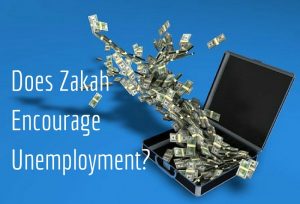-----------------------------------------------------
JESUS JUDGEMENT ON CRUCIFIXION
-----------------------------------------------------
Qur'an 4:158- Nay, Allah raised him up unto Himself; and Allah is Exalted in Power, Wise;-
John 12:32-33- And I, if I be lifted up from the earth, will draw all men unto me.
This he said, signifying what DEATH he should die.
--
Qur'an 43:61 - And (Jesus) shall be a Sign (for the coming of) the Hour (of Judgment): therefore have no doubt about the (Hour), but follow ye Me: this is a Straight Way.
--
Prophet Muhammad said when Jesus comes back, he will discharge judgement between people with justice and he will destroy CROSSES and PIGS which are considered to be abomination.
--
A former pastor, Mathew Oyewole now Alhaj Moshood Oyewole confirmed that a lecturer at an Advanced bible school confirmed vividly to them during an interrogation on a hidden fact discovered in the bible school library that JESUS WAS NOT CRUCIFIED.
--
A man from Nigeria was living in America for almost 30 years and when the man reached the age of 60 years, he decided to relocate to Nigeria. When the man was in America, he was able to build a building which he rented out. While the man relocated to Nigeria, he asked an estate manager to take care of the building and to collect house rent on his behalf.
The first day the estate manager visited the house to collect the house rent, the tenants plotted against him and they killed him.
The Landlord sent another estate manager for the collection of the house rent, the tenants also killed the second estate manager.
The Landlord later decided to send his son to collect the rent, when they see his son coming, the tenants plotted again to kill his son and the son was killed.
-------------------------
The Big Question
-------------------------
WHAT DO YOU THINK THE LANDLORD MUST HAVE DONE TO THE TENANTS ON HEARING THE DEATH OF HIS SON?
A) Laughing on seeing his son lying on the floor dead?
B) Pardon them?
C) Kill them?
D) Nothing?
E) Forgive them?
------
Brethren, do not think the above was a story but rather a biblical narrative of the end time event from Jesus Christ.
Jesus confirmed that in :
Mathew 21:33-43- Hear another parable: There was a certain householder, which planted a vineyard, and hedged it round about, and digged a winepress in it, and built a tower, and let it out to husbandmen, and went into a far country:
34 And when the time of the fruit drew near, he sent his servants to the husbandmen, that they might receive the fruits of it.
35 And the husbandmen took his servants, and beat one, and killed another, and stoned another.
36 Again, he sent other servants more than the first: and they did unto them likewise.
37 But last of all he sent unto them his son, saying, They will reverence my son.
38 But when the husbandmen saw the son, they said among themselves, This is the heir; come, let us kill him, and let us seize on his inheritance.
39 And they caught him, and cast him out of the vineyard, and slew him.
40 When the lord therefore of the vineyard cometh, what will he do unto those husbandmen?
!
41 THEY SAY UNTO HIM, HE WILL MISERABLY DESTROY THOSE WICKED MEN, AND WILL LET OUT HIS VINEYARD UNTO OTHER HUSBANDMEN, WHICH SHALL RENDER HIM THE FRUITS IN THEIR SEASONS.
----
The above biblical submission is exactly what will happen when Jesus comes back.
JESUS WILL DEAL MERCILESSLY WITH THOSE CELEBRATING CRUCIFIXION OF JESUS CHRIST.
JESUS JUDGEMENT ON CRUCIFIXION
-----------------------------------------------------
Qur'an 4:158- Nay, Allah raised him up unto Himself; and Allah is Exalted in Power, Wise;-
John 12:32-33- And I, if I be lifted up from the earth, will draw all men unto me.
This he said, signifying what DEATH he should die.
--
Qur'an 43:61 - And (Jesus) shall be a Sign (for the coming of) the Hour (of Judgment): therefore have no doubt about the (Hour), but follow ye Me: this is a Straight Way.
--
Prophet Muhammad said when Jesus comes back, he will discharge judgement between people with justice and he will destroy CROSSES and PIGS which are considered to be abomination.
--
A former pastor, Mathew Oyewole now Alhaj Moshood Oyewole confirmed that a lecturer at an Advanced bible school confirmed vividly to them during an interrogation on a hidden fact discovered in the bible school library that JESUS WAS NOT CRUCIFIED.
--
A man from Nigeria was living in America for almost 30 years and when the man reached the age of 60 years, he decided to relocate to Nigeria. When the man was in America, he was able to build a building which he rented out. While the man relocated to Nigeria, he asked an estate manager to take care of the building and to collect house rent on his behalf.
The first day the estate manager visited the house to collect the house rent, the tenants plotted against him and they killed him.
The Landlord sent another estate manager for the collection of the house rent, the tenants also killed the second estate manager.
The Landlord later decided to send his son to collect the rent, when they see his son coming, the tenants plotted again to kill his son and the son was killed.
-------------------------
The Big Question
-------------------------
WHAT DO YOU THINK THE LANDLORD MUST HAVE DONE TO THE TENANTS ON HEARING THE DEATH OF HIS SON?
A) Laughing on seeing his son lying on the floor dead?
B) Pardon them?
C) Kill them?
D) Nothing?
E) Forgive them?
------
Brethren, do not think the above was a story but rather a biblical narrative of the end time event from Jesus Christ.
Jesus confirmed that in :
Mathew 21:33-43- Hear another parable: There was a certain householder, which planted a vineyard, and hedged it round about, and digged a winepress in it, and built a tower, and let it out to husbandmen, and went into a far country:
34 And when the time of the fruit drew near, he sent his servants to the husbandmen, that they might receive the fruits of it.
35 And the husbandmen took his servants, and beat one, and killed another, and stoned another.
36 Again, he sent other servants more than the first: and they did unto them likewise.
37 But last of all he sent unto them his son, saying, They will reverence my son.
38 But when the husbandmen saw the son, they said among themselves, This is the heir; come, let us kill him, and let us seize on his inheritance.
39 And they caught him, and cast him out of the vineyard, and slew him.
40 When the lord therefore of the vineyard cometh, what will he do unto those husbandmen?
!
41 THEY SAY UNTO HIM, HE WILL MISERABLY DESTROY THOSE WICKED MEN, AND WILL LET OUT HIS VINEYARD UNTO OTHER HUSBANDMEN, WHICH SHALL RENDER HIM THE FRUITS IN THEIR SEASONS.
----
The above biblical submission is exactly what will happen when Jesus comes back.
JESUS WILL DEAL MERCILESSLY WITH THOSE CELEBRATING CRUCIFIXION OF JESUS CHRIST.



















